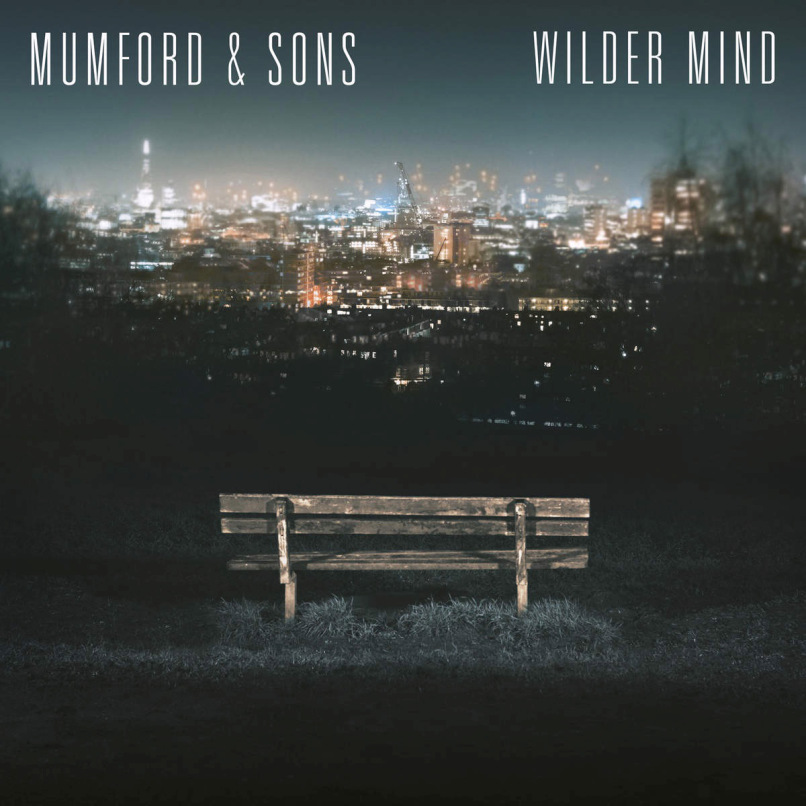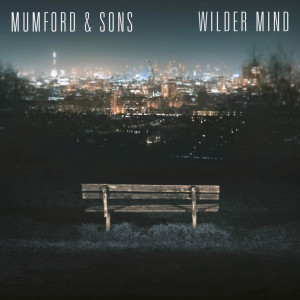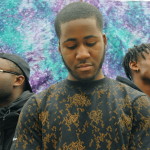After releasing their second album Babel in 2012, Mumford & Sons found themselves in a musical dilemma. Do they become a merry-go-round of routine or upset their fans by expanding up the ladder? From the title alone, it’s easy to decipher which part of the indecisive see-saw they’ve chosen. Their incredible achievements at bringing folk music to global audiences, and their distinctive crescendo-building arrangements of kick drums, banjos, horns, double bass and acoustic guitars made them such household names, it’s surprising this is just their third album. This result is partly down to the fact that all of their 25 LP compositions were catchy, instantly familiar and contained universal heartbreak lyrics that communicated effortlessly with their audiences – the same explanation for the surge in popularity of Kings Of Leon, Adele and Sam Smith.
However, when arriving at the last few tracks off Babel, things started appearing a little repetitive and predictable. They were in danger of becoming a pastiche of themselves. They started as a band with responses in the ballpark of “I recognise them, they are obviously Mumford & Sons” which then became “Yep, that’s Mumford & Sons again, doing the same old thing. Please change the channel…”
Maybe a modification was necessary and a wise move in their evolution. To shake things up a bit, Mumford & Sons jettisoned their banjo and upright bass. They substituted their long-time producer Markus Dravs with James Ford and The National‘s Aaron Dressner. The former has been a prolific talisman in the indie music scene, producing both Florence and The Machine albums, four Arctic Monkeys long players and Haim‘s debut. Whilst the fact that Mumford & Sons are “super fans” of Dressner, they have a great team on board for their new musical journey. The structure of Mumford & Sons’ record under Dravs was guessable, but on Wilder Mind things are a little more… well, wilder. The first teaser ‘Believe’ was the perfect introduction to their switcheroo of roots-flavoured indie folk to a harder alternative rock edge.
Beginning with a flute-like timidness that helps create a refreshing air, Mumford’s recognisable voice persuasively invites us in before the sudden distorted electric groans evolve and the hazardous shred guitars begin to dictate. On ‘Tompkins Square Park’, the immediate electric guitar rings out with such a wayward and disorientated force that it sort of overlaps into the shoegaze genre, although the drum beat (including drum-machine-like brushes), the rhythm and delivery of Mumford’s vocals are reminiscent of new wavers Future Islands.
It might be tedious to focus on the background layer but due to the specialities of their new producers the cold oxygen that infiltrates actually contributes towards a greater aesthetic satisfaction and much more intricate detail, something that can also be heard on the title track ‘Wilder Mind.’ With its blissful anti-chorus, classic guitar wails and the progression of Richard Ashcroft‘s ‘A Song For The Lovers’, this is a song that also breaks with Mumford & Sons’ escalation traditions
On some occasions, it’s actually the style of the drumming that’s more powerful and less folk-inclined as on ‘The Wolf’. Whilst Mumford regularly adopts aggressive and passionate yells in his choruses, the vigorous and untamed nature of the rock animosity contribute to its Foo Fighters‘ persona. This association will at least keep the band on Radio 1’s playlist for a little while longer. The album also hints at elements of blues-rock as piano and claps are joined by blues guitar vibrato on ‘Just Smoke.’ Tremolo and warped phasing effects that would have never have fitted into their folk catalogue show a band with new tricks up their sleeve on ‘Monster’ and ‘Only Love.’ Marcus Mumford’s voice is generally as expected, but like the music it undergoes a few transformations including on ‘Cold Arms’, which is somewhat a Nick Cave-like attempt at deep crooning.
There’s an unusual phenomenon surrounding the literature that influenced Mumford & Son’s lyrics: their words become more meaningful the more you analyse them, especially the case when their reoccurring themes of regret, persistence, empathetic improvement and self-worth were paired into a deeper religious context. Therefore with that wine-methodology their quality is hard to measure at present. Although it’s clear that ‘Ditmas’ and ‘Tompkins Square Park’ must have a relation to the album recording time they spent in New York and reflect that Marcus is allowing the rest of the band (Ted Dwane, Ben Lovett and Winston Marshall) to contribute to the lyrics, exemplified by ‘Believe’.
Although Mumford and Sons have reacted to Alice Cooper‘s comment about them not being an authentic rock band with a tougher frame, there is still so much of the old lovable quartet still remaining. The majority of their new songs still possess the capability to be concert anthems, provoke sing-a-longs with comprehensible lyrics aided by unified harmonies, it’s just that maybe this time it’s more hazardous to stand right by the stadium’s speaker.
Mumford and Sons’s recent admiration for Kanye West and hip-hop music, combined with the statement that they “hope that the arc of the band will be interesting,” suggests that maybe an even greater style shift could be on the horizon.
[Rating:3]





